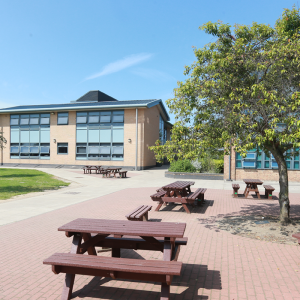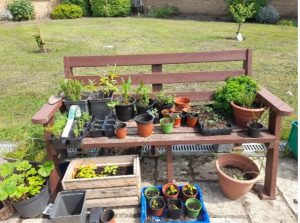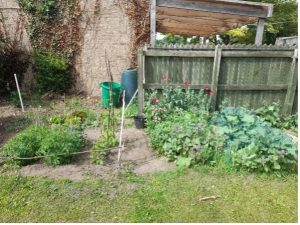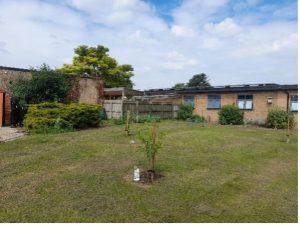Learning Support

The Learning Support Department works closely with Heads of Year and Assistant Heads of Year and Class Teachers to help all students achieve to the best of their ability by reducing and removing identified barriers to learning.
Our team consists of the school SENDCO, Deputy SENDCo, HLTAs, Learning Mentors and Teaching Assistants.The school SENDCo and Deputy SENDCo are responsible for the co-ordination of additional support for students in school.
HLTAs and Learning Mentors lead intervention programmes working on Literacy (reading and writing) and Numeracy (maths) as well as small group lessons working on developing other skills for learning.
Teaching Assistants predominantly support identified students with SEND in their lessons and give assistance with class and homework, working under the direction of class teachers. TAs also lead form-time interventions working on reading, handwriting, spelling, numeracy, social skills and developing other skills for learning. Additionally, the ELSA trained staff within our department are able to offer one to one sessions with students requiring emotional support in school.
The Learning Support team are based in the B block at the front of school. The department comprises 3 classrooms, 2 of which are equipped with computers for students to use and interactive whiteboards. We also have a wellbeing meeting room within the department offering a softer space for students to engage in emotional support sessions. We have a small sensory space, which is a calming sensory room with bubble tube light, beanbags and interactive textures.
For students requiring assistive technology, the Learning Support Department has a bank of laptops which students can access to use in lessons. In addition to this we have electronic reading pens, software to support dyslexic students on the school computers and laptops.
The Learning Support department is open at breaks and lunchtimes to both provide a safe, quiet social space and also help with homework and supporting students with organisation; any students experiencing difficulty with their learning or social interactions are encouraged to attend.
In addition to the mainstream offer, the Learning Support Department oversees the ERP Base – the Enhanced Resource Provision for Autism Spectrum Condition on site. You can read more about The Base on the Enhanced Resource Provision tab, on this page.
For more detailed information about our department you can read the SEND Information Report 25-26, and our SEND Policy.
If you have any questions about the provision of Learning Support at Fulford School please contact Anna Mehta, School SENDCo, by email on mehtaa@fulford.york.sch.uk or phone 01904 633300
Learning Support Key Stage 3
For students with identified SEND joining Fulford the Learning Support department will work closely with their primary school and parents to ensure a positive transition. Pen Portraits, which details student’s strengths and needs are created and shared with class teachers
At Key Stage 3 all students complete screening assessments in their first half term of Year 7. We provide Catch-Up programmes for both literacy and numeracy for students who did not achieve the age expected standard in reading and/or mathematics. This intervention is coordinated and delivered by two HLTAs focusing on developing basic skills and working towards personalised targets.
In Year 8 and 9 a small number of students identified in collaboration with curriculum leaders will continue to receive timetabled literacy or numeracy lessons. These students follow a personalised scheme designed to develop key skills in reading comprehension, spelling and grammar and mathematical concepts. Lessons also address study skills and personal organisation for learning.
Across Key Stage 3 Teaching Assistants lead form time interventions supporting students in handwriting, spelling and social skills. ELSA sessions are available for students requiring one-to-one emotional support.
Learning Support Key Stage 4
In Key Stage 4, we support SEND students with their GCSE studies and revision skills. This support may include:
- in-class Teaching Assistant support
- small group or one-to-one bespoke support within the department.
We offer Foundation Learning Programme as an option subject where students work towards completion of the BTEC WorkSkills Level 1 qualification. This qualification is awarded based on a portfolio of evidence and assessment tasks that students complete. The qualification is designed to develop learners’ employability skills and students will complete modules such as: developing work-related numeracy skills, contributing to teamworking in the workplace, responding to work related problems. A link to the WorkSkills specification is here: https://qualifications.pearson.com/en/qualifications/btec-workskills/level-1-2021.html
Together with Ms Birkby (Careers Advisor), students are offered guidance and support with their post-sixteen education choices. Students with an Education Health and Care Plan will also receive support from City of York Councils Learning and Work Advisor to prepare for Post 16 destinations. During Key Stage 4 identified SEND students have the opportunity to visit different colleges and sixth forms supported by the department.
Students who have additional learning needs will be assessed for Exam Access Arrangements in Years 9 and 10. This can include assessments for:
- extra time
- a reader
- use of a laptop
- rest breaks
other specialised support for individual needs such as a practical assistant or oral modifier.

The Enhanced Resource Provision supports up to ten students with a diagnosis of Autism in the mainstream school. Our ERP is called “The Base” and the nature of our support depends upon the individual needs of each student. Inclusion is a priority and our students spend most of their time in mainstream lessons with their peers.
The Base has a lead practitioner who runs enhanced interventions, activities and offers additional support in lessons. All students who access the Base have support in lessons from the teaching assistant team who all have a thorough understanding of how to best support each student. Most students complete a full range of GCSE subjects and all students have the opportunity to go on to further education or employment.
We work closely with families and many other agencies (EPS, CAMHs, SALT, Occupational Therapists, Social Services. Specialist Teaching Team etc.) to provide a holistic approach giving each student the opportunity to thrive and succeed.
We want our young people to:
- be happy and healthy
- be confident in themselves
- develop positive social relationships
- learn to be independent
- achieve their best grades possible
- have the chance of further education or suitable employment.
- be ready to engage with the wider community.
Students have personalised timetables with allocated sessions in The Base for planned interventions. These are to support students to meet their EHCP outcomes and cover areas that students with a diagnosis of Autism regularly need additional support with.
We currently offer interventions on:
- Communication and Interaction
- Social Understanding and Relationships
- Sensory Processing
- Routines and Processing
- Emotional Understanding and Self Awareness
- Learning and Engagement
- Healthy Living
- Independence and Community Participation
There are also other sessions which are catered more to the individual needs and interests of those within The Base. These activities are designed to enhance the school experience for young people both by learning new skills and by offering activities that provide a sense of calm and enjoyment. Sessions we currently are able to offer include:
- Art Sessions
- Lego Club
- Yoga Sessions
- Cooking Sessions
- Enterprise Activities (selling plants we have grown, Christmas decorations etc). Funds are then used for further activities in the Base.
- Gardening
There are always a range of activities on offer in The Base during social times including: Board games, quizzes, scavenger hunts, yoga and many more…!
Sensory Support in The Base
We understand that secondary school can be an overwhelming environment for students and we have worked hard to ensure that The Base is a calm environment where students can recover from sensory overload. We have a dedicated sensory area within The Base which students can access when needed. For students who require more structured sensory support to manage their time at school, we are able to incorporate sensory circuits into their day using a range of specialist equipment that we have in the provision.

The Base Garden
We are lucky to have a wonderful garden as part of The Base, and the students enjoy looking after the area. We have developed this space to now include: a vegetable patch, fruit and herb patch, 4 new fruit trees and dozens of species of flowers and shrubs. We hope to incorporate this into our enterprise work so that we can sell some produce to purchase more seeds.
We hope to develop the garden this year to include sensory elements and some areas to support the environmental work at Fulford, such as rewilding one area.

Base Transitions
We understand that transitions can be particularly difficult for students with autism so we try and provide as much support for students in these areas.
Any year 6 students who are allocated a space in the Base will have the opportunity for transition visits throughout the summer term and these are arranged with parents and the Primary school. The number of visits will be based on the needs of the student and can include a mix of short and longer sessions, in The Base and around school.
When young people leave at the end of Year 11, students are supported by key staff to attend post 16 provision open days or taster days and to make contact with their future placements. The preparation for adulthood portfolio will be completed through Key Stage 4 to give the young people skills to live a happy and healthy life beyond The Base.
Communication between The Base, Wider School and Home
Mrs Stevens communicates regularly with teachers around the school to address any issues for the young people who access The Base. There may be times when a young person will be escorted to or supported in particularly challenging lesson to help establish a plan of support to make these classes more accessible.
Parents will receive regular updates via a method of communication that suits them best. This may be a weekly roundup, or a phone call every day. If a student has had a difficult day, parents will be informed to help support the transition to home that afternoon. Parents are invited to regular coffee mornings in The Base. All students who are part of the ERP will have interventions and activities that are recorded so that parents can see the progress that they are making in non-academic areas.
CYC Local Offer
York SEND Local Offer
The York SEND Local Offer sets out services and activities available to children and young people with Special Educational Needs and Disabilities; support is available from birth to 25 years old. The Local Offer website provides helpful information for families, children and young people as well as professionals.
The York SEND Local Offer can be found here.
If you wish to contact the team at City of York Council about the Local Offer, please email: yorklocalofferSEND@york.gov.uk
